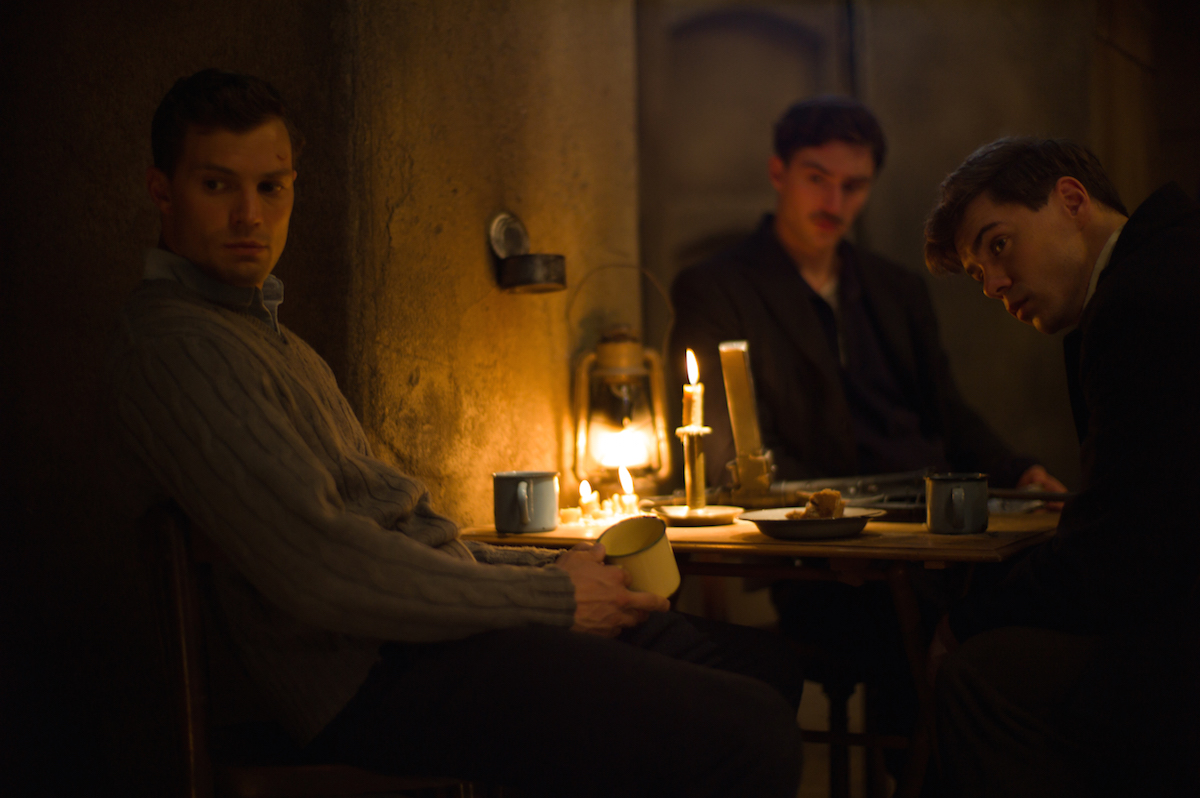
In early 1942, TIME reported that Germany had chosen “its bloodiest man” to “combat rebellion in Europe.” Reinhard Heydrich was nicknamed der Henker—the Hangman. Though he had long remained hidden in Himmler‘s shadow, a former Gestapo official told TIME that Himmler “would just be a senseless dummy” without the “brutal, despotic and merciless” Heydrich.
By that June, Heydrich was dead, assassinated at the hands of resistors sent by the Czech government in exile, as part of a mission called Operation Anthropoid. How that happened is the subject of the new movie Anthropoid.
Zdeněk Špitálník, of Prague’s Military History Institute, served as a historical adviser on the film, helping with early consultation on the script as well as daily on-set vigilance once filming began. Špitálník, who had previously filled a similar role for some Czech television projects, helped the film try to stick to the facts in its broad arc as well as details like costumes—though he jokes that the director had to remind him sometimes that there is “no time in two hours to say everything there is to say about every man who was involved in Operation Anthropoid.” It helped that Prague is a good place to film a 1940s period movie, as the Old Town area is well-preserved and many of the landmarks look the same as they did then.
He tells TIME that the story was not widely known even within the nation then known as Czechoslovakia during its time under communist rule, until 1989. “But in the last 15 years it became very popular,” he says, “and I hope that every child in school learns about Operation Anthropoid.”
Why? “It’s a story about bravery and it’s also a warning against any form of radicalism and any form of evil,” he says. “It’s also a very good example that every form of fight against evil matters.”
Get your history fix in one place: sign up for the weekly TIME History newsletter
TIME’s original 1942 coverage of Operation Anthropoid—which was headlined “Heydrich’s Inferno” and captured the man in lurid terms, imagining a dialogue between him and the devil—puts the need to tell that story in stark terms:
Reinhard Heydrich died and went to hell.
“Hello,” said the Devil. “We’ve been getting quite a few of you Gestapo men lately. I understand there will be more, too, before long. But you were supposed to be the toughest guy in Europe. Millions of people hated you. You were a big shot. What in the world happened to you?”
“Heil Hitler,” said Heydrich. “It was the Czechs who did it, the yellow democratic curs. They bombed my car last week, outside Prague, while I was on my way back to Berlin to tell the Fuhrer (Heil Hitler!’) that Czecho-Slovakia had at last been Germanized. Two men bombed me and then shot up my spine with tommy guns, the contemptible, bicycling plutocrats—Heil Hitler!”
“Come, come,” said the Devil. “Let’s forget the ‘Heil Hitler’ business for a while. Remember we’re all sons of bitches here. Now just tell me what you did in Czecho-Slovakia.”
It was thought at the time that article was printed that Heydrich would live, permanently disabled by his injuries, so the punch line, such as it was, was that even Hell wouldn’t accept Heydrich. By the following week, however, he had died—leading to a brutal campaign for revenge. “In the greatest man hunt in modern history, Nazi police moved from house to house, sniffing out new victims for the Heydrich funeral pyre,” TIME reported.
What came next was even worse: the wiping out of the town of Lidice, near Prague, pop. 1,200, in what the magazine described as “the worst atrocity committed by a civilized nation in modern times.” Over accusations that the town had sheltered Heydrich’s killers, the men were killed and the women and children sent off to camps, before the town was burned in its entirety, “reprisal work on the scale of a hundred eyes for one tooth.”
The following week, TIME’s coverage of the story ended, with the Czech resistors found and shot.
“Czechs-in-exile hoped that this marked the end of perhaps the chillest atrocity chapter in modern history,” TIME noted. “But, two days later, the killings started anew.”
More Must-Reads from TIME
- Donald Trump Is TIME's 2024 Person of the Year
- Why We Chose Trump as Person of the Year
- Is Intermittent Fasting Good or Bad for You?
- The 100 Must-Read Books of 2024
- The 20 Best Christmas TV Episodes
- Column: If Optimism Feels Ridiculous Now, Try Hope
- The Future of Climate Action Is Trade Policy
- Merle Bombardieri Is Helping People Make the Baby Decision
Write to Lily Rothman at lily.rothman@time.com